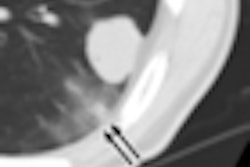A Canadian study of patients treated for squamous cell carcinoma of the hypopharynx revealed that there was no difference in outcomes between radiation therapy with or without salvage surgery, and surgery with or without postoperative radiation therapy, according to an article published online in Cancer (August 25, 2009).
Researchers studied 856 patients who received treatment between 1990 and 1999 in hospitals and regional cancer centers in Ontario, according to lead author Dr. Stephen Hall, an otolaryngologist and professor of surgical oncology at the Queen's Cancer Research Institute of Queen's University in Kingston, Ontario.
Hall and colleagues conducted the study using data from the Ontario Cancer Registry, in part because there was a lack of randomized clinical trials comparing standard radiotherapy with surgery for treatment of hypopharyngeal carcinoma. They used three different methodological approaches to determine that there was no survival advantage with either type of treatment.
Survival outcomes were nearly identical from data of completion of treatment through 10-year follow-up. At 10 years, fewer than 20% of the patients in the cohort were alive.
Acknowledging that their analysis was conducted in the "prechemotherapy era," the authors state that their findings are highly relevant today because if baseline outcomes of radiotherapy versus surgery are unknown, it's impossible to understand the true effectiveness of adding chemotherapy to radiotherapy or surgery. If there is no difference in survival, treatment decisions need to include the wishes of the patient with respect to quality of life.
Copyright © 2009 AuntMinnie.com



















